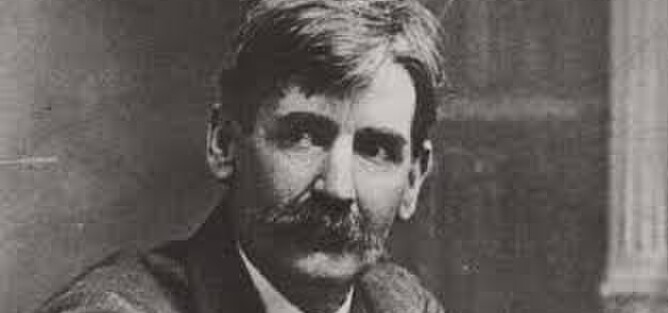In this blog post, we will be exploring the short stories of Henry Lawson within Module A’s Language, Identity and Culture. This will focus upon the composer’s utilisation of language in order to shape meaning surrounding the cultural values of the individual and the collective, and what insight this provides into the representation of their identity.
Overview and Context
Lawson’s deliberately unembellished version of life in the Australian landscape challenges the prevailing assumptions of romanticism and reveals the harsh reality of both the individual and collective experience within a 19th century colonial era.
Lawson characterises the main protagonists of his texts by conveying ideas of both resilience and nihilism and the hardships endured in the isolated, monotonous aspect of the Australian colonial landscape. This enables us as audiences to empathise with their experiences and gain greater insight into the reality of living within this context.
Quotes
In the poem “Union buries its dead”, Lawson challenges the romanticised notions of the bush by examining a realist ambiance of religious and class intolerance shaped by his harsh environment.
Lawson characterises the Australian identity as citizens who lack sentimentality towards the late union member and has become too reliant on notions of materialism such as liquor during the face of adversity, “ unionism is stronger than creed. Liquor however is stronger than unionism”. Lawson utilises parallelism to reveal their societal culture as too ‘inebriated’ to show emotion and consideration towards those around them. We can also say that the satirical tone reinforces the nihilistic attitude and identity of bush inhabitants, where the mourning ritual with the Australian bush is represented as unmerciful.
Another example...
The intolerance to religious principles within the disunified Australian landscape is evident as "One or two heathens winced slightly when the holy water was sprinkled on the coffin”, implementing biblical imagery to reinforce the notion of an anonymous individual identifying the priest as the “devil”. Lawson explains that this intolerance is due to the lack of faith in religious institutions by bush habitants, where their contextual landscape and society has failed to provide them with any relief from the harsh realities of the outback. This enables Lawson to shape the isolated cultural identity within the Australian outback, generating empathy for the nihilistic attitudes which have shaped the individual’s adverse experience of living during colonialism.
*Please note that while this information is a great starting point for these texts, relying solely on the information in this post will not be enough to get a result in the top bands.

